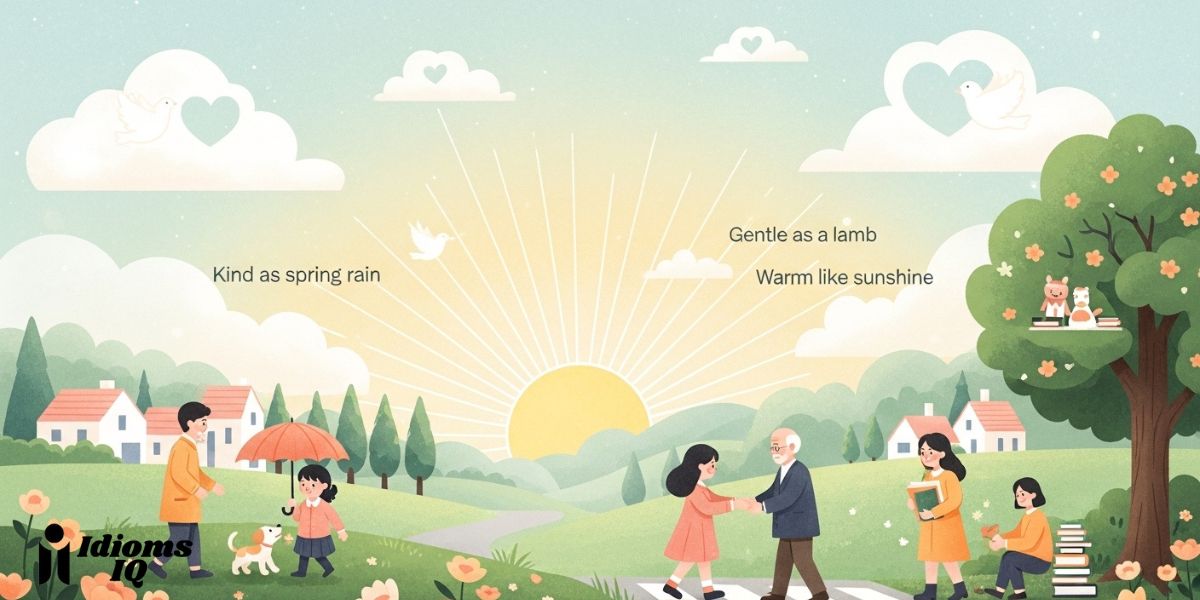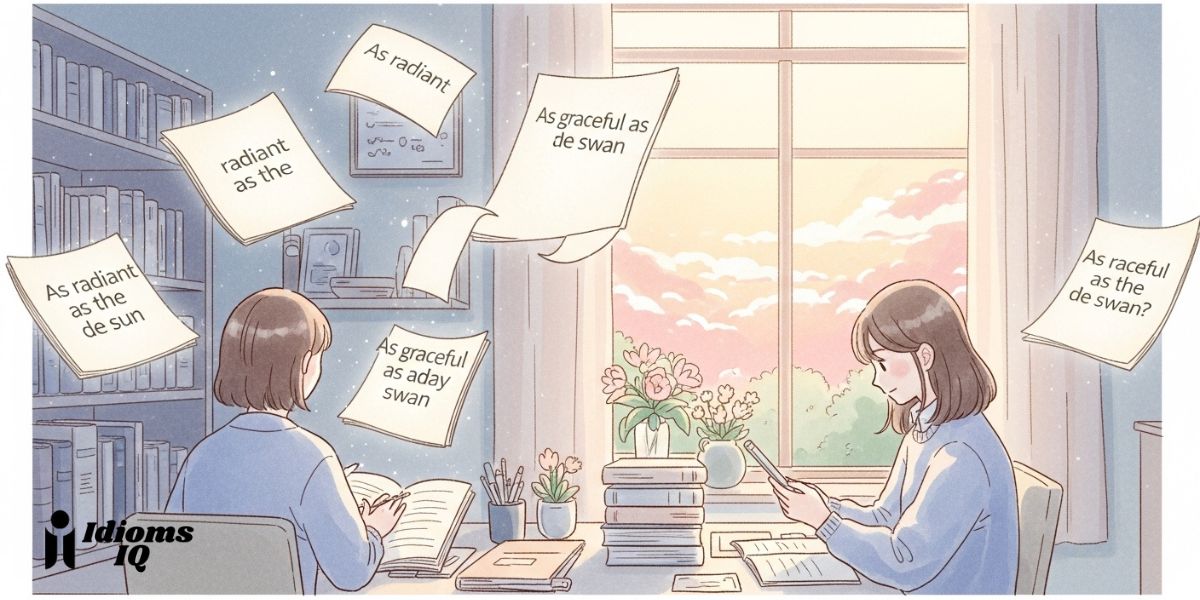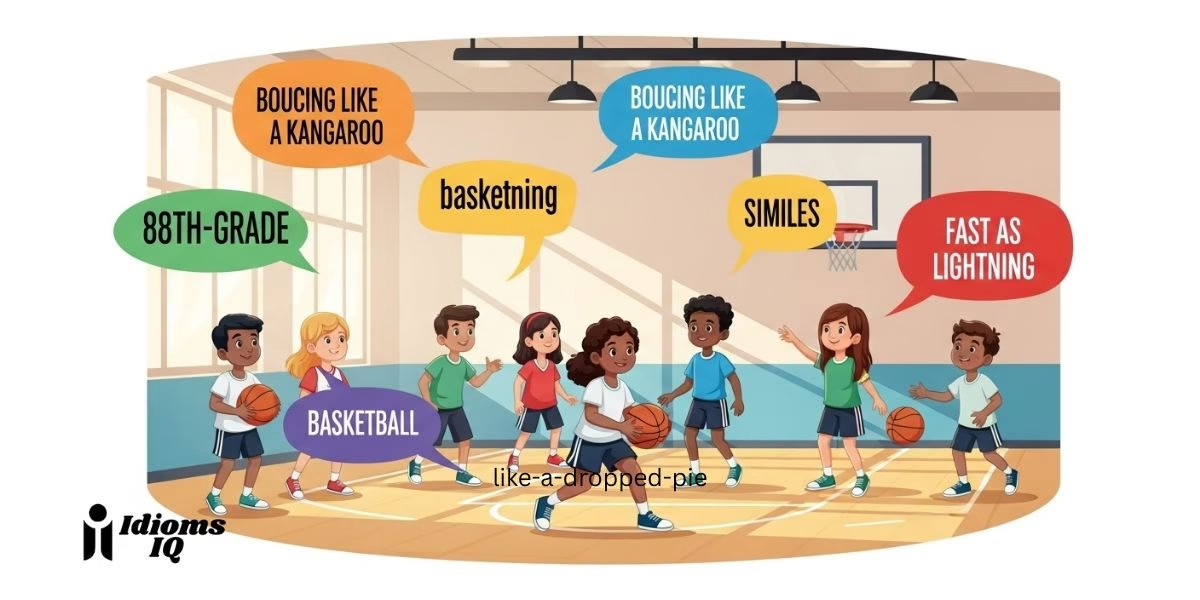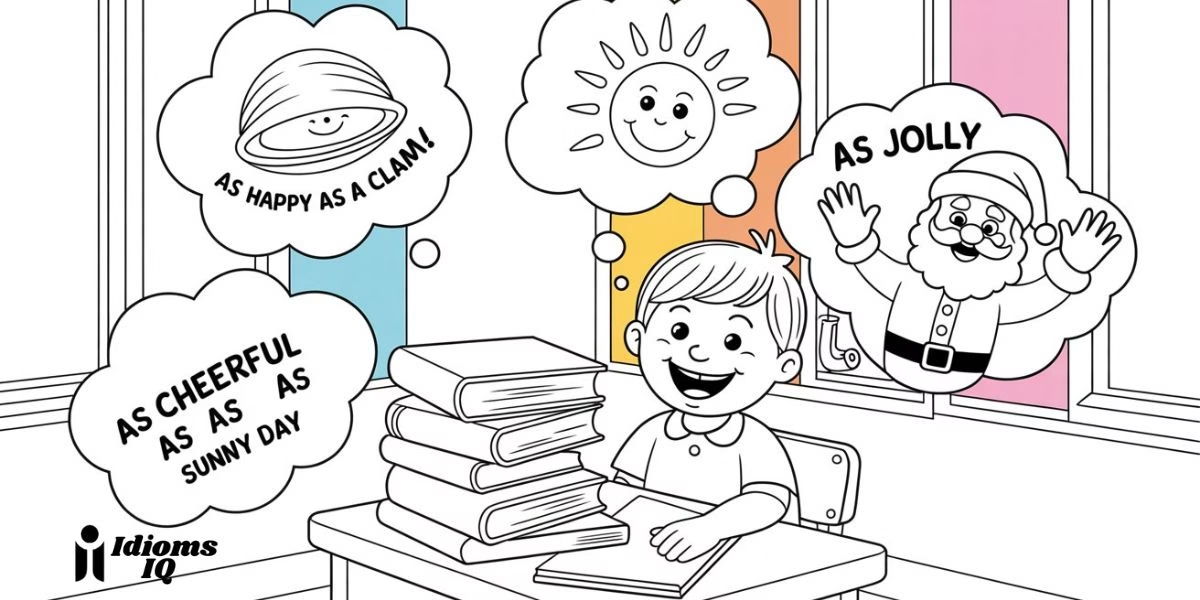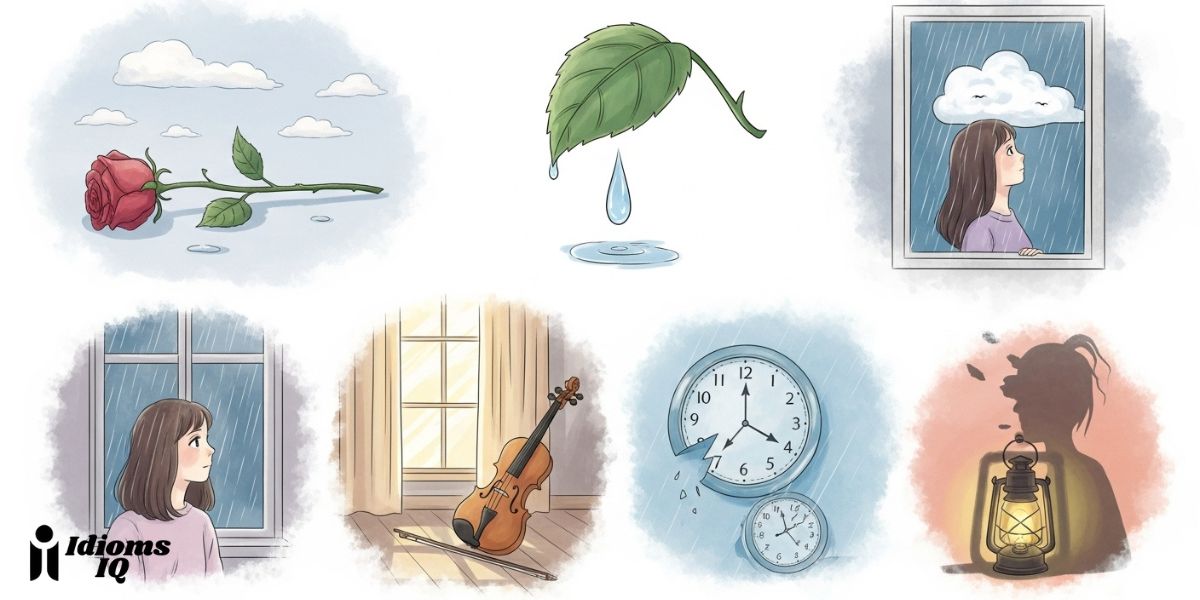
Language is a vibrant and dynamic tool, and among its most evocative figures of speech are similes. These powerful comparisons, using “like” or “as,” draw connections between seemingly disparate things, allowing us to describe complex feelings and experiences with remarkable clarity and vibrancy. Similes are not just decorative; they are fundamental to how we understand and convey the nuances of life.
By likening an abstract emotion, such as sadness, to a tangible image, similes make the intangible relatable and the profound accessible. They can transform a simple statement of sorrow into a vivid mental picture, inspiring deeper thinking and bringing clarity to intricate emotions or experiences. Embracing similes about sadness allows us to paint clearer portraits of our feelings, fostering a richer, more empathetic connection with others and a more profound appreciation for the beauty of expression, ultimately helping us in understanding life better.
Once you’re done exploring these deep expressions, take a look at idioms that describe working hard through tough times
Similes for Sadness
Here are 35 sad similes that vividly describe various aspects of “sadness.”
1. As Sad as a Rainy Day
- Meaning: This simile conveys a feeling of gloom, melancholy, and a general sense of dreariness, much like the atmosphere on a day filled with rain. It describes a pervasive, low-level sadness.
- Use in a sentence: After hearing the news, she felt as sad as a rainy day, with a heavy cloud hanging over her.
- Other ways to say it: Gloomy, melancholic, downcast.
2. As Empty as a Desert
- Meaning: This simile emphasizes a feeling of profound loneliness, desolation, and a lack of joy or connection, much like a barren landscape. It describes an isolating sadness.
- Use in a sentence: After everyone left, the house felt as empty as a desert, mirroring her own feelings of isolation.
- Other ways to say it: Desolate, lonely, hollow.
3. As Dark as Midnight
- Meaning: This simile conveys an intense, profound, and often overwhelming sense of despair or hopelessness, similar to the deepest part of the night. It describes a severe, consuming sadness.
- Use in a sentence: His mood was as dark as midnight after receiving the devastating news.
- Other ways to say it: Despairing, hopeless, bleak.
4. Like a Broken Toy
- Meaning: This simile suggests a feeling of being damaged, useless, or discarded, often accompanied by a sense of lost innocence or purpose. It describes a sadness stemming from feeling irreparable.
- Use in a sentence: After the betrayal, she felt like a broken toy, no longer whole or functional.
- Other ways to say it: Damaged, shattered, dejected.
5. As Cold as Stone
- Meaning: This simile emphasizes a feeling of emotional numbness, detachment, or a lack of warmth and empathy, often in response to deep pain. It describes a hardened, unresponsive sadness.
- Use in a sentence: After years of disappointment, her heart felt as cold as stone, unable to feel joy or sorrow.
- Other ways to say it: Numb, unfeeling, hardened.
6. Like a Wilting Flower
- Meaning: This simile describes a state of decline, loss of vitality, and a visible manifestation of sadness, as if one is losing their vibrancy. It describes a fading, visible sadness.
- Use in a sentence: After the bad news, her spirit sagged like a wilting flower, losing its color and life.
- Other ways to say it: Fading, languishing, dispirited.
7. As Heavy as Lead
- Meaning: This simile conveys an overwhelming sense of emotional burden, weariness, or a crushing weight of sorrow that makes movement or thought difficult. It describes a burdensome sadness.
- Use in a sentence: His heart felt as heavy as lead with the burden of his mistakes.
- Other ways to say it: Oppressive, burdensome, crushing.
8. Like a Ship Without a Sail
- Meaning: This simile suggests a feeling of being lost, without direction, purpose, or hope, drifting aimlessly in a sea of despair. It describes a directionless sadness.
- Use in a sentence: After losing his job, he felt like a ship without a sail, adrift and without direction.
- Other ways to say it: Adrift, lost, aimless.
9. As Grey as Ash
- Meaning: This simile emphasizes a dull, lifeless, and colorless feeling of sadness, where all vibrancy and joy have been extinguished. It describes a muted, desolate sadness.
- Use in a sentence: The world seemed as grey as ash to her after the tragic event.
- Other ways to say it: Lifeless, dull, colorless.
10. Like a Fading Photograph

- Meaning: This simile describes a sense of nostalgia mixed with sorrow, where happy memories are becoming less distinct, or a past joy is now tinged with sadness. It describes a nostalgic, diminishing sadness.
- Use in a sentence: Her memories of happier times were like a fading photograph, beautiful but increasingly distant.
- Other ways to say it: Lingering sorrow, diminishing pain, distant joy.
11. As Silent as a Graveyard
- Meaning: This simile conveys a profound sense of quiet desolation, emptiness, and a lack of life or joy, often after a loss. It describes a solemn, empty sadness.
- Use in a sentence: The house became as silent as a graveyard after the children moved out, filled with an echoing sadness.
- Other ways to say it: Desolate, quiet, empty.
12. Like a Broken Record
- Meaning: This simile suggests a repetitive, inescapable cycle of negative thoughts or emotions, where one is stuck in a loop of sadness. It describes a persistent, cyclical sadness.
- Use in a sentence: Her mind kept replaying the hurtful words, like a broken record of despair.
- Other ways to say it: Repetitive, stuck, inescapable.
13. As Bitter as Gall
- Meaning: This simile emphasizes a deep, acrid, and unpleasant emotional pain, often mixed with resentment or disappointment. It describes a sharp, unpleasant sadness.
- Use in a sentence: The taste of defeat was as bitter as gall, leaving a lasting unpleasantness.
- Other ways to say it: Acrid, resentful, harsh.
14. Like a Shadow Lengthening
- Meaning: This simile describes sadness as a growing, encroaching presence that gradually consumes one’s light and happiness. It describes an intensifying, pervasive sadness.
- Use in a sentence: As the days passed, the sadness grew like a shadow lengthening, engulfing her entirely.
- Other ways to say it: Growing, encroaching, deepening.
15. As Lost as a Child in a Crowd
- Meaning: This simile conveys a feeling of vulnerability, confusion, and profound isolation, even when surrounded by others. It describes an overwhelmed, isolated sadness.
- Use in a sentence: In the bustling city, he felt as lost as a child in a crowd, overwhelmed and alone.
- Other ways to say it: Isolated, vulnerable, bewildered.
16. Like a Storm Brewing
- Meaning: This simile suggests an impending sense of sorrow or emotional turmoil that is gradually building up and threatening to erupt. It describes a building, imminent sadness.
- Use in a sentence: She could feel the sadness building inside her like a storm brewing, ready to break.
- Other ways to say it: Impending sorrow, building despair, emotional turmoil.
17. As Worn as an Old Shoe
- Meaning: This simile describes a feeling of being exhausted, tired, and depleted by sadness or life’s hardships. It describes a weary, depleted sadness.
- Use in a sentence: After years of struggle, he felt as worn as an old shoe, tired and used up.
- Other ways to say it: Exhausted, depleted, weary.
18. Like a Tear Falling
- Meaning: This simile directly connects sadness to the physical manifestation of crying, emphasizing the quiet, often solitary nature of sorrow. It describes a quiet, profound sadness.
- Use in a sentence: Her sadness was quiet and profound, like a tear falling unseen.
- Other ways to say it: Quiet sorrow, silent grief, unspoken pain.
19. As Faded as an Old Flag
- Meaning: This simile conveys a sense of diminished vibrancy, lost glory, and a general weariness or lack of spirit due to prolonged sadness. It describes a diminished, spiritless sadness.
- Use in a sentence: His enthusiasm for life had become as faded as an old flag, tattered and colorless.
- Other ways to say it: Diminished, worn out, spiritless.
20. Like a Dying Ember

- Meaning: This simile suggests a lingering, weak, and almost extinguished sense of hope or joy, where only a faint spark remains. It describes a dwindling, fragile sadness.
- Use in a sentence: After so many setbacks, his hope was like a dying ember, barely flickering.
- Other ways to say it: Fading hope, nearly extinguished, weak spark.
21. As Bleak as Winter
- Meaning: This simile emphasizes a feeling of starkness, coldness, and a lack of warmth or comfort, similar to a harsh winter landscape. It describes a cold, hopeless sadness.
- Use in a sentence: The future seemed as bleak as winter to him, devoid of warmth or promise.
- Other ways to say it: Desolate, grim, cold.
22. Like a Broken Mirror
- Meaning: This simile suggests a shattered sense of self, identity, or reality, where one’s perception is fragmented and distorted by sadness. It describes a fragmented, distorted sadness.
- Use in a sentence: After the trauma, her sense of self was like a broken mirror, fragmented and unclear.
- Other ways to say it: Shattered, fragmented, distorted.
23. As Deep as a Well
- Meaning: This simile conveys an immeasurable and profound sadness that seems to have no bottom, suggesting an endless reservoir of sorrow. It describes a profound, boundless sadness.
- Use in a sentence: Her grief was as deep as a well, seemingly without end.
- Other ways to say it: Profound, boundless, endless.
24. Like a Ghost Haunting
- Meaning: This simile describes sadness as an intrusive, persistent, and unsettling presence that lingers and disturbs one’s peace. It describes a pervasive, unsettling sadness.
- Use in a sentence: The memory of his words kept returning, like a ghost haunting her thoughts.
- Other ways to say it: Haunting, persistent, unsettling.
25. As Still as Death
- Meaning: This simile conveys an absolute, profound stillness and lack of life or movement, often associated with deep grief or despair. It describes a motionless, desolate sadness.
- Use in a sentence: A profound silence fell over the room, and her heart felt as still as death.
- Other ways to say it: Motionless, lifeless, inert.
26. Like a Drowning Man
- Meaning: This simile suggests a feeling of being overwhelmed, suffocated, and desperately struggling against a tide of sadness or despair. It describes an overwhelming, desperate sadness.
- Use in a sentence: He felt like a drowning man in a sea of sorrow, unable to find solid ground.
- Other ways to say it: Overwhelmed, suffocating, desperate.
27. As Sour as Vinegar
- Meaning: This simile emphasizes an unpleasant, acrid, and often bitter feeling of sadness, possibly mixed with resentment or disappointment. It describes a sharp, unpleasant sadness.
- Use in a sentence: The taste of his failure was as sour as vinegar, leaving a lingering unpleasantness.
- Other ways to say it: Bitter, acrid, unpleasant.
28. Like a Caged Bird
- Meaning: This simile describes a feeling of being trapped, confined, and longing for freedom, where one’s spirit is suppressed by sadness. It describes a confined, yearning sadness.
- Use in a sentence: She felt like a caged bird, longing to escape the confines of her grief.
- Other ways to say it: Trapped, confined, suppressed.
29. As Cold as a Tomb
- Meaning: This simile conveys an extreme sense of emotional emptiness, lifelessness, and often a chilling despair, similar to a place of death. It describes a chilling, desolate sadness.
- Use in a sentence: The abandoned house felt as cold as a tomb, filled with a palpable sense of sadness.
- Other ways to say it: Lifeless, desolate, chilling.
30. Like a Fading Melody

- Meaning: This simile suggests a beautiful but melancholic memory or feeling that is slowly becoming less distinct, leaving a lingering sense of loss. It describes a diminishing, melancholic sadness.
- Use in a sentence: The joy of their past was now like a fading melody, beautiful but increasingly distant and sad.
- Other ways to say it: Fading, distant, melancholic.
31. As Broken as a Promise
- Meaning: This simile emphasizes the feeling of betrayal, disappointment, and the irreparable damage caused by a trust broken, leading to deep sadness. It describes a betrayed, shattered sadness.
- Use in a sentence: Her trust in him was as broken as a promise, leaving her with profound sadness.
- Other ways to say it: Betrayed, shattered, disappointed.
32. Like a Winter Tree
- Meaning: This simile describes a state of barrenness, vulnerability, and a lack of life or vibrancy, similar to a tree stripped bare in winter. It describes a barren, vulnerable sadness.
- Use in a sentence: After the loss, she felt exposed and vulnerable, like a winter tree stripped of its leaves.
- Other ways to say it: Barren, exposed, vulnerable.
33. As Damp as a Dungeon
- Meaning: This simile conveys a feeling of oppressive gloom, confinement, and a chilling, uncomfortable sadness. It describes an oppressive, uncomfortable sadness.
- Use in a sentence: The atmosphere in the old, neglected room was as damp as a dungeon, reflecting the sadness within.
- Other ways to say it: Oppressive, gloomy, confined.
34. Like a Storm-Tossed Ship
- Meaning: This simile describes a feeling of being violently battered by overwhelming emotions, struggling to stay afloat amidst intense sadness and turmoil. It describes a turbulent, struggling sadness.
- Use in a sentence: Her emotions were like a storm-tossed ship, reeling from the unexpected news.
- Other ways to say it: Battered, overwhelmed, reeling, struggling.
35. As Fragile as Glass
- Meaning: This simile emphasizes the extreme vulnerability and delicate nature of one’s emotional state when sad, easily shattered by further impact. It describes a vulnerable, easily broken sadness.
- Use in a sentence: After the setback, her spirits were as fragile as glass, needing careful handling.
- Other ways to say it: Delicate, brittle, sensitive, easily shattered.
Fill-in-the-Blank Exercise: Similes for Sadness
Complete the following sentences with the most appropriate simile from the list above.
- After the bad news, her spirit sagged, ______________.
- His heart felt ______________ with the weight of his guilt.
- The silence in the empty house was ______________, echoing her profound loneliness.
- She felt utterly lost and without direction, ______________.
- The world seemed ______________ to him after the tragic accident.
- His hope, after so many failures, was ______________, barely flickering.
- The grief from the unexpected loss was ______________, seemingly bottomless.
- After the betrayal, she felt ______________, unable to be whole again.
- The bitterness of the outcome was ______________, leaving a terrible taste.
- She could feel the sorrow building inside her ______________, ready to burst.
- The house became ______________ after the family moved out, filled with an eerie quiet.
- Her memories of their happy times were ______________, beautiful but slowly fading.
- He felt completely overwhelmed by his problems, ______________ in a stormy sea.
- The long, dark night felt ______________, reflecting her deep despair.
- Her enthusiasm for life had become ______________, dull and lifeless.
Answer Key: Fill-in-the-Blank Exercise
- as a wilting flower
- as heavy as lead
- as empty as a desert
- like a ship without a sail
- as grey as ash
- like a dying ember
- as deep as a well
- like a broken toy
- as bitter as gall
- like a storm brewing
- as silent as a graveyard
- like a fading photograph
- like a drowning man
- as dark as midnight
- as faded as an old flag
Conclusion
Similes are far more than mere linguistic embellishments; they are powerful tools that enrich our communication and deepen our understanding life better. By engaging with these vivid comparisons, we not only enhance our vocabulary but also cultivate a more nuanced appreciation for the subtle connections between abstract concepts and concrete images. Practicing the usage of similes can significantly improve both our writing skills and emotional intelligence, allowing us to convey complex ideas and emotions with greater clarity, conciseness, and impact.
Furthermore, the process of deciphering and applying similes sharpens our cognitive abilities, encouraging us to think beyond literal interpretations and connect with the underlying sentiments and observations they encapsulate. Embracing similes is an invitation to explore the richness of language and, in so doing, to understand life in a more profound and insightful way.


